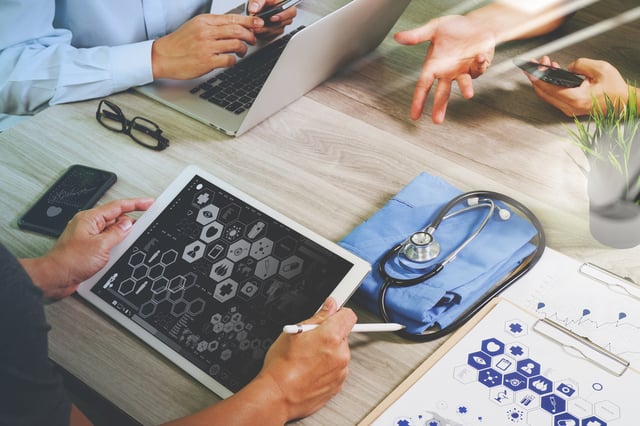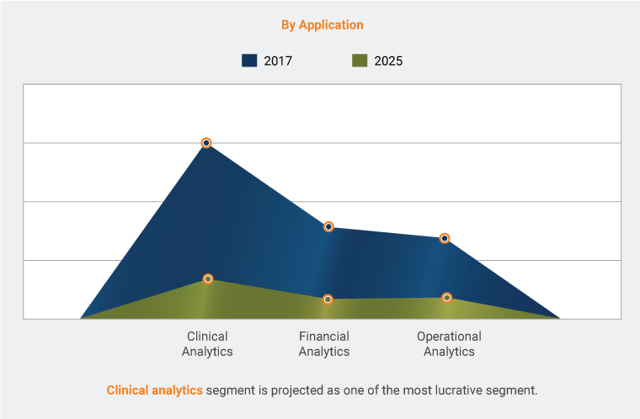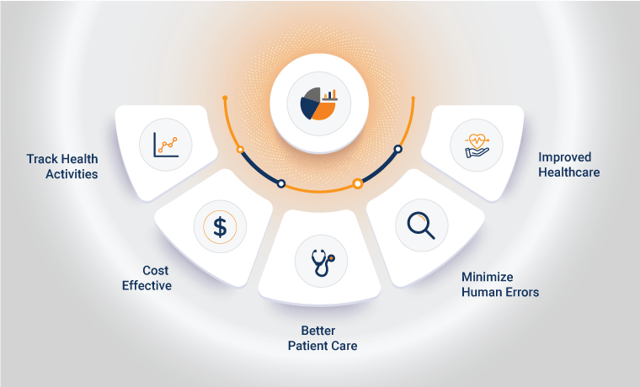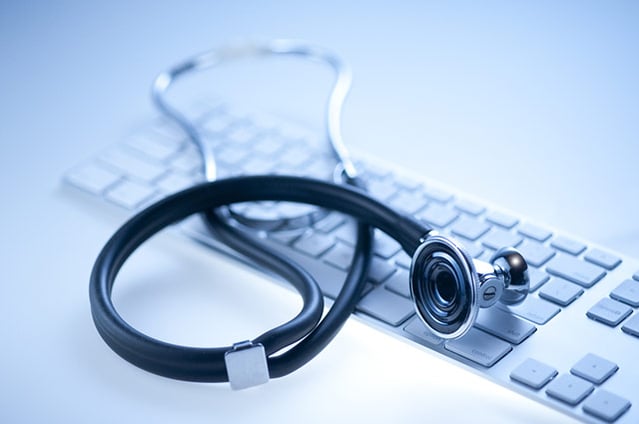
Big data is a term that defines the large volume of unstructured or structured data that impacts a business on a day-to-day basis. This data can give valuable business insights and solve business problems that could not be tackled before with conventional analytics or software. Over the last few years, various healthcare software has been launched to make people’s lives easier and improve quality care. Moreover, the healthcare and life sciences industry demands foolproof product quality assurance.
Big data in healthcare collects patient's records and improves the performance of healthcare facilities by the following means:
- Use patient data to improve clinical outcomes.
- Manage operational data to improve productivity.
- Use healthcare financial data to improve the revenue for hospitals or healthcare organizations.
Global Big Data Analytics in Healthcare Market

Why Is Big Data Important?
The importance of big data does not depend on how much data an organization has. Instead, it deals with what an organization does with that data. Data can be collected from any source and then analyzed to find solutions that lead to cost reductions, time savings, new product development, and smart decision-making. Organizations that use big data in healthcare software development implement big data testing to improve the reliability and quality of their products.
When big data combines with strong analytics, various business-related tasks can be easily accomplished, such as:
- Identifying root causes of failures and issues in real-time.
- Generating offers/coupons based on customers' purchase records.
- Recalculating entire risk profiles in minutes.
Big Data Expansion in Healthcare:
Big data has immense use in any business environment. Healthcare industries are using big data and associated analytics in several ways. Also, testing healthcare software requires a deep knowledge of best healthcare quality assurance practices to ensure good quality in the product. Below are the top 5 ways big data can help and change the healthcare sector:
Top 5 Advantages of Big Data in Healthcare Sector

- Track Health Activities: Healthcare organizations are focusing more on the continuous monitoring of patients' health-related data with the help of sensor data collection. It helps hospitals to reduce the patient’s visits to hospitals. With sensor machines, hospitals can identify potential health issues and provide care before the situation worsens.
- Cost-Effective: Big data technology is an affordable option for hospitals. Using big data, healthcare organizations can find many options to improve the efficiency of the tasks performed.
One of the advantages of using big data is that hospitals and clinics can estimate and allocate the proper staff. It saves money and reduces emergency room waiting time.
- Better Patient Care: Health systems provide the insights that are important to drive a higher level of personalization. The current health system is adopting the new idea of patient convenience and personalized care. By digitizing hospital records using big data, one can access accurate data to understand the pattern of many patients.
For example, the patient can be updated with the reports or appointments via SMS or emails automatically.
- Minimize Human Error: Big data analytics in healthcare can analyze user data and prescribed medication. It can minimize human errors such as prescribing the wrong medicine or dispatching a different medication by mistake.
- Improved Healthcare: Big data is the key to advancement in Healthcare. Artificial Intelligence can analyze large volumes of data within seconds to find solutions for various diseases. Such advancements will not only be able to provide accurate solutions but will also offer customized solutions for unique problems. Also, using a hybrid cloud environment for file sharing enables the seamless transfer of information between peers. Testing hybrid file-sharing platforms will ensure security and integrity.
Conclusion
Healthcare big data is like electronic medical records (EMRs). It incorporates a patient's medical history, physician notes, clinical reports, biometric data, and other data related to health and usage of this data by healthcare organizations to provide better customer service and management. Also, having proper quality assurance and testing service solutions to check healthcare software quality before launching is a necessary thing to consider.





